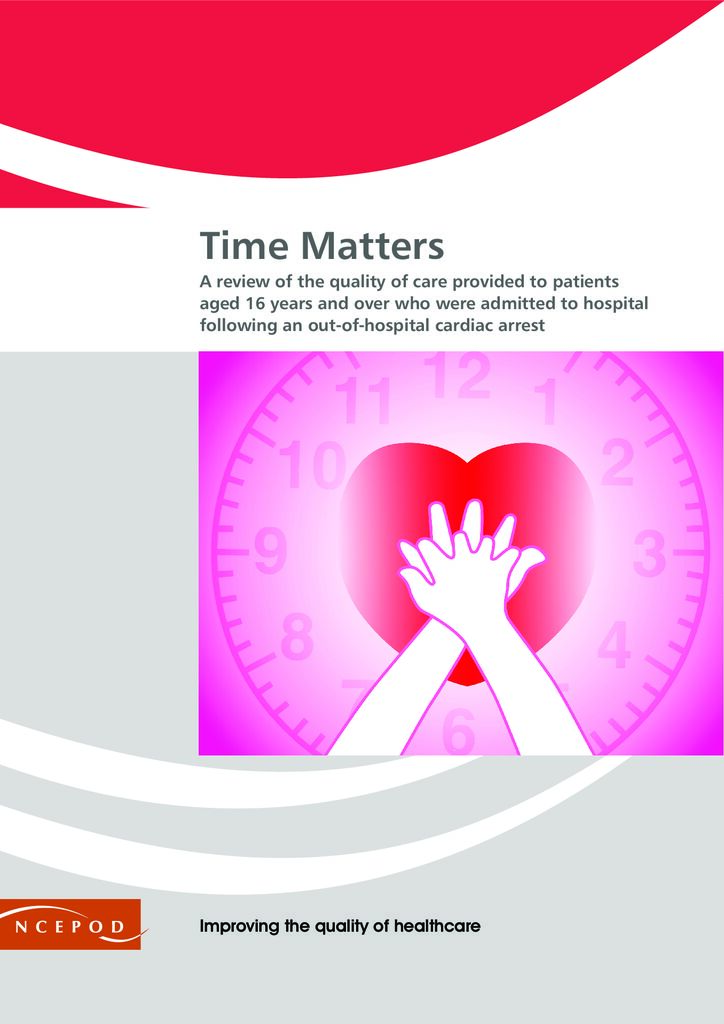Medical and Surgical – Out of Hospital Cardiac Arrest Report
The incidence of out-of-hospital cardiac arrest (OHCA) in the UK is approximately 60,000 per year and UK ambulance services attempt resuscitation in an estimated 30,000 people per year. Figures from England alone have shown considerable variation in both the rate of return of spontaneous circulation (ROSC) at hospital handover (13-27%) and the rate of survival to hospital discharge (2.2%-12%). This means that, on average, fewer than one in ten people in the UK survive an OHCA.
The aim of this study was to identify variation and remediable factors in the processes of care provided to patients over the age of 16 years admitted to hospital following an out-of-hospital cardiac arrest (OHCA). From the study, five key messages aimed at improving the care of people admitted to hospital have been drawn from the report’s recommendations:
- Bystander cardiopulmonary resuscitation, including use of public access defibrillators, improves outcome
- Standardising advanced treatment plans helps patients receive realistic treatment based on their wishes
- Delaying the assessment of neurological prognosis by at least 72 hours after the return of spontaneous circulation aids decision-making
- Ensure good temperature control is used following an OHCA as uncontrolled temperature is associated with a worse outcome
- Provide ongoing physical, neurological, cardiac and emotional support to ensure good quality of life for survivors of an OHCA
You can read the report and infographic by clicking on the links below.
Stay-up-to-date: For notifications of future reports from HQIP, sign up to our mailing list.


